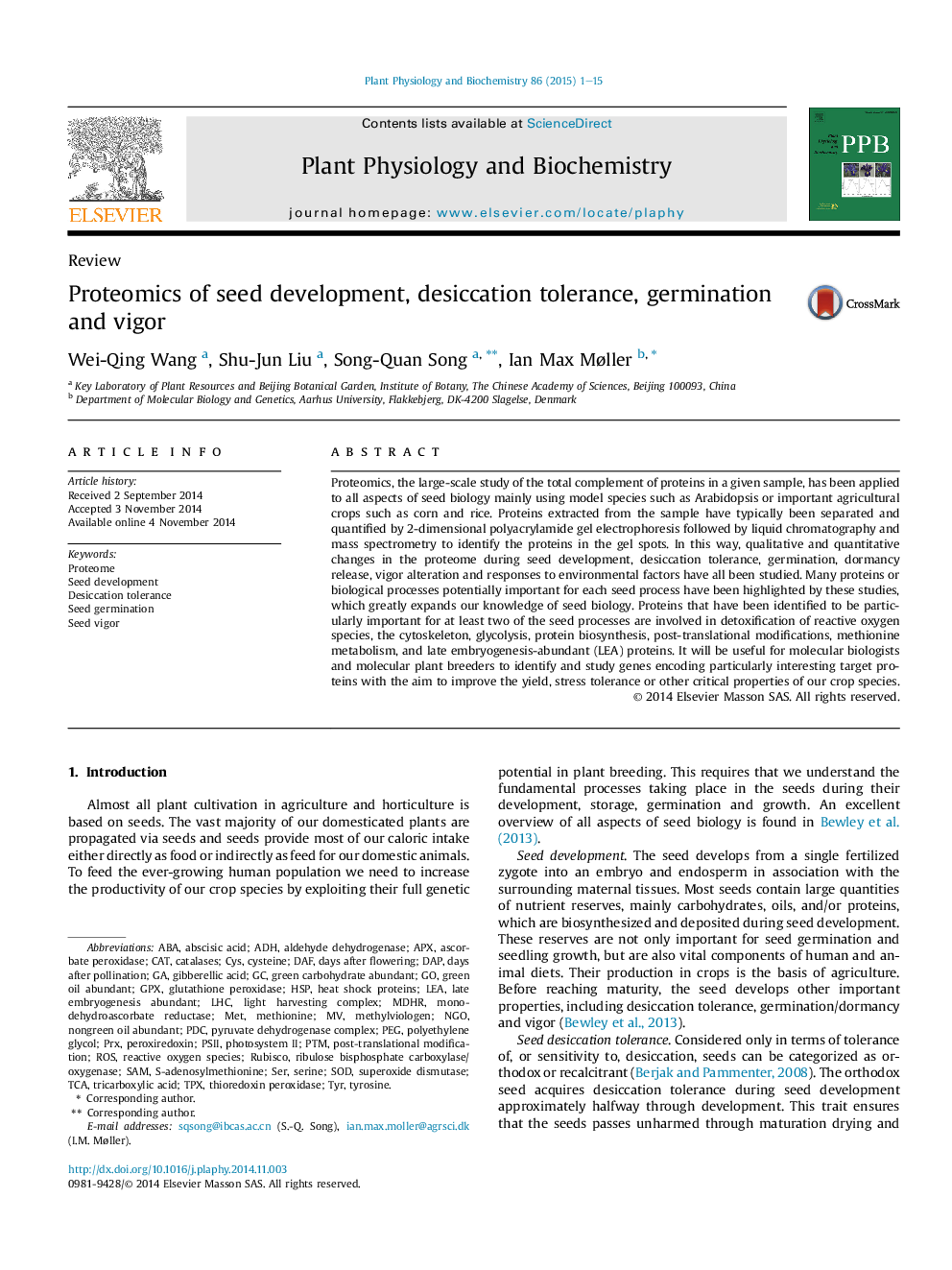| Article ID | Journal | Published Year | Pages | File Type |
|---|---|---|---|---|
| 2016015 | Plant Physiology and Biochemistry | 2015 | 15 Pages |
•Changes in the seed proteome have been studied mainly using 2D-PAGE.•In general, it is not possible to identify a single most important protein.•Proteins involved in defense against ROS are important for all seed processes.•Proteins of the cytoskeleton and glycolysis are also important.•The next omics frontier will be post-translational modifications of proteins.
Proteomics, the large-scale study of the total complement of proteins in a given sample, has been applied to all aspects of seed biology mainly using model species such as Arabidopsis or important agricultural crops such as corn and rice. Proteins extracted from the sample have typically been separated and quantified by 2-dimensional polyacrylamide gel electrophoresis followed by liquid chromatography and mass spectrometry to identify the proteins in the gel spots. In this way, qualitative and quantitative changes in the proteome during seed development, desiccation tolerance, germination, dormancy release, vigor alteration and responses to environmental factors have all been studied. Many proteins or biological processes potentially important for each seed process have been highlighted by these studies, which greatly expands our knowledge of seed biology. Proteins that have been identified to be particularly important for at least two of the seed processes are involved in detoxification of reactive oxygen species, the cytoskeleton, glycolysis, protein biosynthesis, post-translational modifications, methionine metabolism, and late embryogenesis-abundant (LEA) proteins. It will be useful for molecular biologists and molecular plant breeders to identify and study genes encoding particularly interesting target proteins with the aim to improve the yield, stress tolerance or other critical properties of our crop species.
